A Surgical Training Beacon
The CANES Lab trains doctors from near and far on the latest microsurgical techniques
By Jodie Nicotra
Illustration and Animation by Neil Webb
The CANES Lab is creating a new era for global medical outreach.
T
he best airplane pilots fly every day. And just like pilots, surgeons need regular practice to be effective.
Juan Armando Chiossone-Kerdel, M.D., understands the importance of regular training in both endeavors. Before he became a surgeon, he had his pilot’s license.
“I use a lot of my flying knowledge in the way I behave as a surgeon. Perform, repeat, perform, repeat, perform, repeat,” said Dr. Chiossone-Kerdel, assistant professor of clinical otolaryngology. “The more you fly, the better you are, because you have many more skills — ones you can’t get from a book or a YouTube video. And once you’re in the field actually doing the task you’re meant to be doing, you’ll find that it’s different from what people have told you, or what you’ve seen or what somebody else has done.”
This principle of regular practice exists at the heart of the CANES (Cranial Access, Neuroanatomy and ENT Surgical) Laboratory, which Dr. Chiossone-Kerdel co-directs with his colleague, Carolina Benjamin, M.D., associate professor of neurological surgery.
A joint venture between the Department of Neurological Surgery and Department of Otolaryngology-Head and Neck Surgery, the CANES Lab is a microsurgical training facility for residents, fellows and physicians. The lab, which opened in 2018 under the leadership of Simon Angeli, M.D., professor of clinical otolaryngology and director of the UHealth Ear Institute, is equipped with the newest surgical technology, offering surgeons and trainees the opportunity to practice surgery in a lower-stakes environment.
Surgical Practice With the Latest Technologies
The CANES Lab has several industry partners that help incorporate the newest surgical technologies and techniques into the facility. Not only do UM doctors and residents use the lab, but the industry partners also can send their doctors to learn in a state-of-the-art facility.
In a time of rapidly changing technology, the chance to practice is critical, both for junior surgeons and those with more experience.
“When you incorporate something new, it’s going to be new for me, regardless of my surgical experience,” Dr. Chiossone-Kerdel said. “The best thing you can do is get into an environment that is similar to an operating room and say, ‘Listen, I need to know how I feel with this new technology and how much training I need to have and be able to master and use my skills at the same levels I’m doing with the standard technology.’
An International Beacon for Surgical Training
While similar training labs exist in medical schools across the United States, what’s unique about the CANES Lab is its intention to establish an international presence.
“These fabulous training labs most of the time are for local and internal consumption,” Dr. Chiossone-Kerdel said. “They might train their own residents and fellows, but what has been fading away is the practice of having these unique or important U.S. medical institutions training doctors from all around the world.”
The 1960s and ’70s were a golden era in the U.S. for medical outreach, Dr. Chiossone-Kerdel said. The U.S. was an epicenter of medical technology, ahead of Europe and other developed countries. Medical professionals from other countries came to the U.S. to train, then they went back to their own countries to develop those areas of expertise.
A long period of U.S. insularity followed that era of outreach. But in the last decade or so, the pendulum has begun to swing in the other direction. Dr. Chiossone-Kerdel is working to make the Miller School part of the trend toward outreach.
“More and more academic institutions in the medical field have begun to reach out again,” he said. “At UM, we want to bring this golden era back, which benefits not just our academic institution, but everyone. We’re going to get more support. We’re going to get more grants. We want to broaden our image beyond just being a place that does fantastic medicine.”
Courses Only Offered at the CANES Lab
The CANES Lab is the only academic center in the U.S. that provides a three-day surgery course taught completely in Spanish. Surgeons from Latin America, Spain and Portugal come for the hands-on courses.
The lab also offers three- and four-day courses to practicing ear, nose and throat surgeons from around the world who are seeking to learn the latest surgical techniques. Recent courses have been offered on endoscopic ear surgery and new surgical technology.
“I want to get the lab into that level where we start being a beacon again,” Dr. Chiossone-Kerdel said. “We want to excel, to do things differently. And the only way to do that is to put all our work into creating more training courses and bringing more people here.” ![]()


